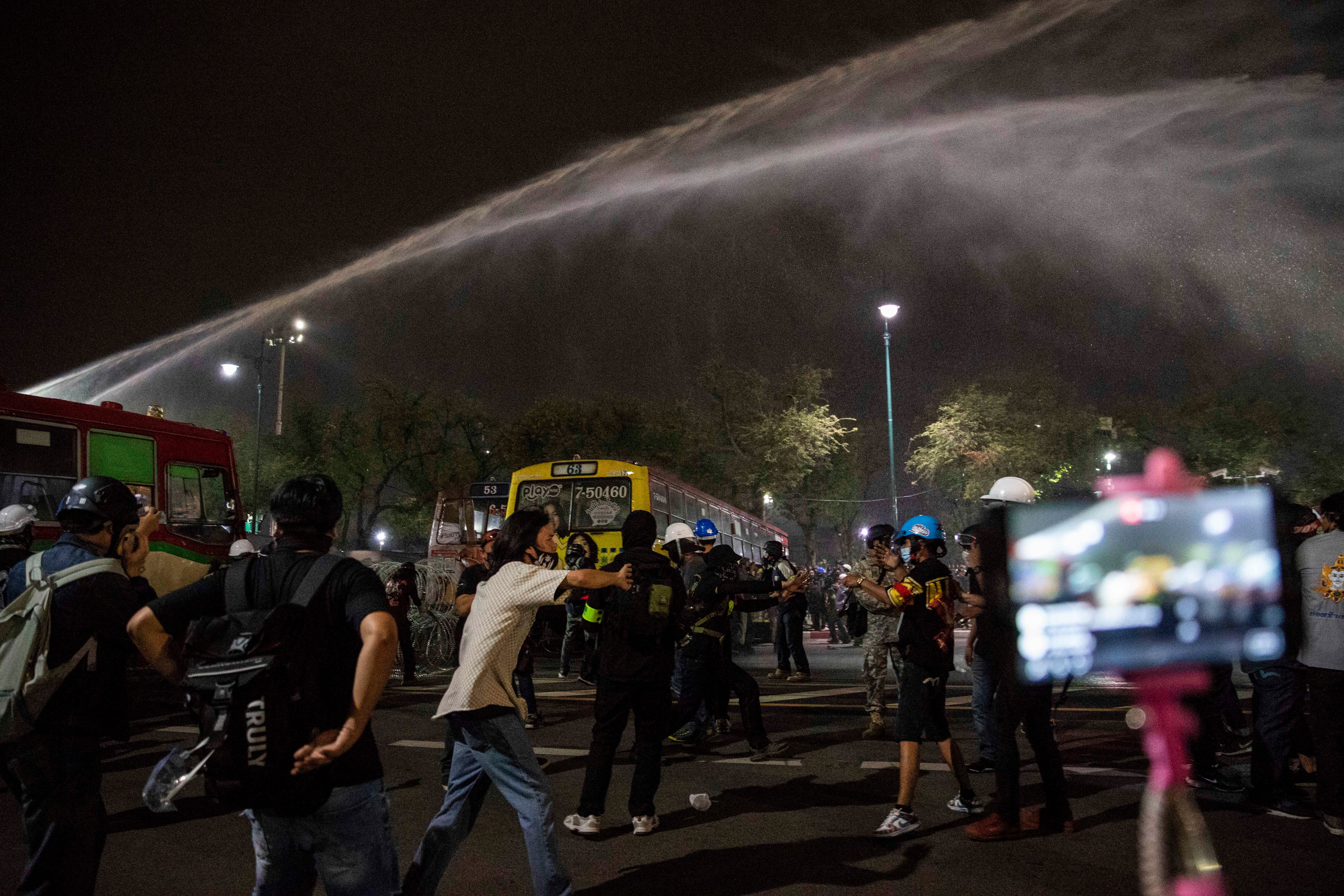Thai police use water cannons against pro-democracy protesters in Bangkok
Thailand’s prime minister has recently proposed a new measure to encourage higher public participation

Your support helps us to tell the story
From reproductive rights to climate change to Big Tech, The Independent is on the ground when the story is developing. Whether it's investigating the financials of Elon Musk's pro-Trump PAC or producing our latest documentary, 'The A Word', which shines a light on the American women fighting for reproductive rights, we know how important it is to parse out the facts from the messaging.
At such a critical moment in US history, we need reporters on the ground. Your donation allows us to keep sending journalists to speak to both sides of the story.
The Independent is trusted by Americans across the entire political spectrum. And unlike many other quality news outlets, we choose not to lock Americans out of our reporting and analysis with paywalls. We believe quality journalism should be available to everyone, paid for by those who can afford it.
Your support makes all the difference.Police in Thailand fired water cannons on thousands of pro-democracy protesters on Sunday as they continued to demand the ouster of the military-backed prime minister and former general Prayut Chan-o-cha and a slew of other reforms.
Demonstrators were marching towards the royal palace in Bangkok to convey their demands – which include curbs on the power of the monarchy – to King Maha Vajiralongkorn, but their route was blocked by police using buses and barbed wire.
Eye witness accounts and news images showed sprays of water hitting the crowd, but according to local media reports police insisted they did not deliberately fire on protesters, rather aiming towards the sky in a bid to get the marchers to disperse.
The protesters were carrying letters addressed to the king, seeking reforms and end of monarchy’s interference in national politics. The letters said when the king can hear flattering praise he should also listen to fearless criticisms and suggestions – a reference to Thailand’s strict lèse-majesté laws.
The anti-government protests have been continuing in Thailand for months now with activists pushing for a new constitution, the resignation of the prime minister and reforms of a monarchy which is still much-revered by older generations.
Last month, Thailand’s government had declared a state of emergency, banning large gatherings and placing controls on local media coverage of the unrest, but the student-led protesters continued to turn out in large numbers. After a week the government lifted the emergency and tried to engage the protesters in dialogue.
This latter approach has failed to make any impact so far. Protesters have added to their demands a call for the release of dozens of activists who were arrested during the emergency.
Last week, Thailand government’s spokesperson said that prime minister Prayut Chan-o-cha has signed a letter to officially propose the draft Referendum Act which is “proposed to promote genuine public participation under the democratic process for the sole benefit of the Thai people.”
“Under the draft act, the people could exercise their fundamental rights prescribed in the constitution to express their voices by way of voting, both on constitutional amendment and on the government’s decisions on major issues,” the government spokesperson had said.




Join our commenting forum
Join thought-provoking conversations, follow other Independent readers and see their replies
Comments